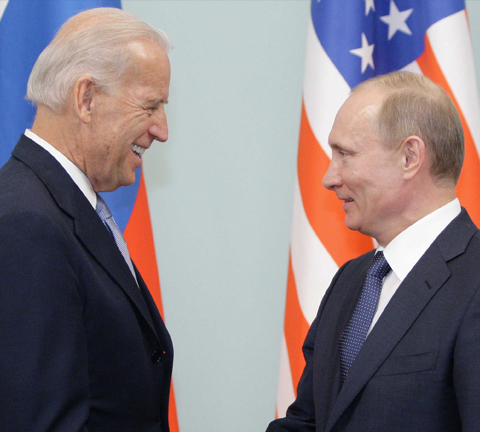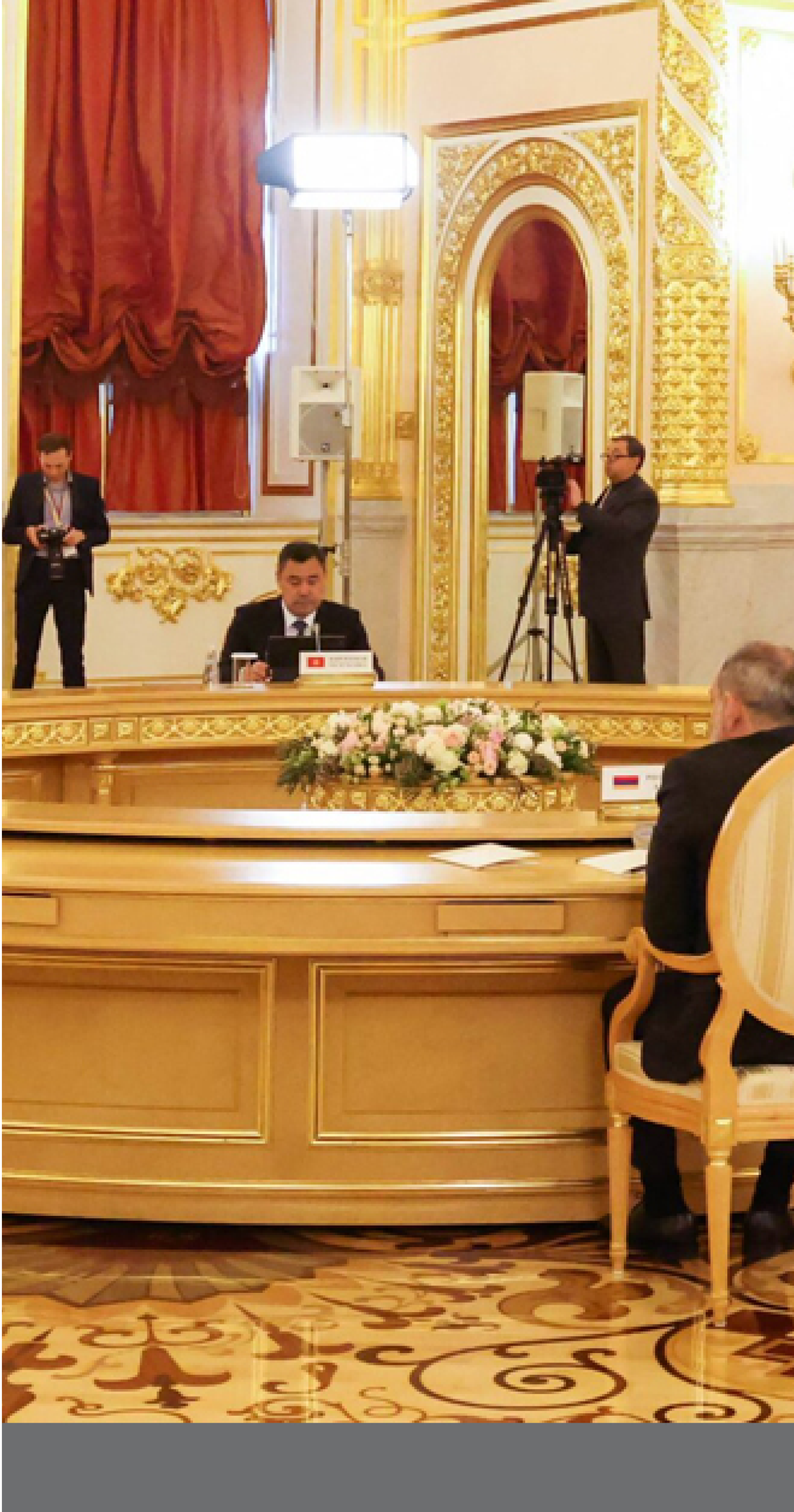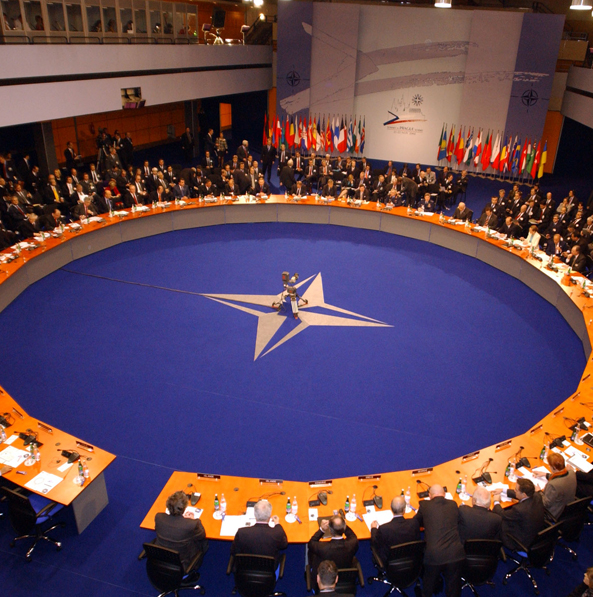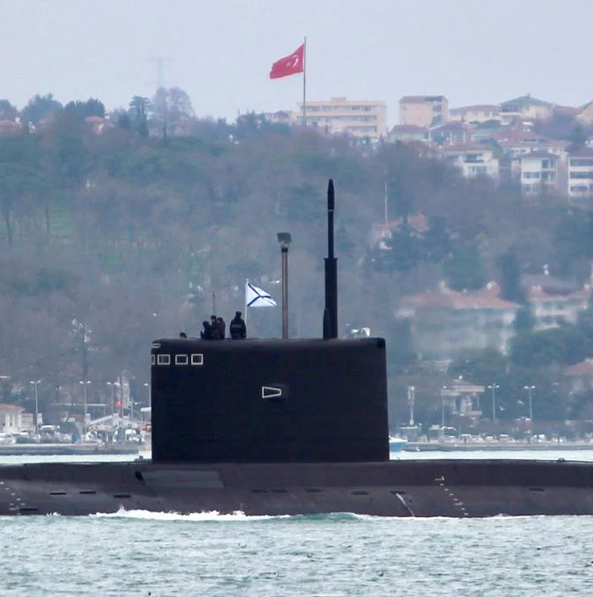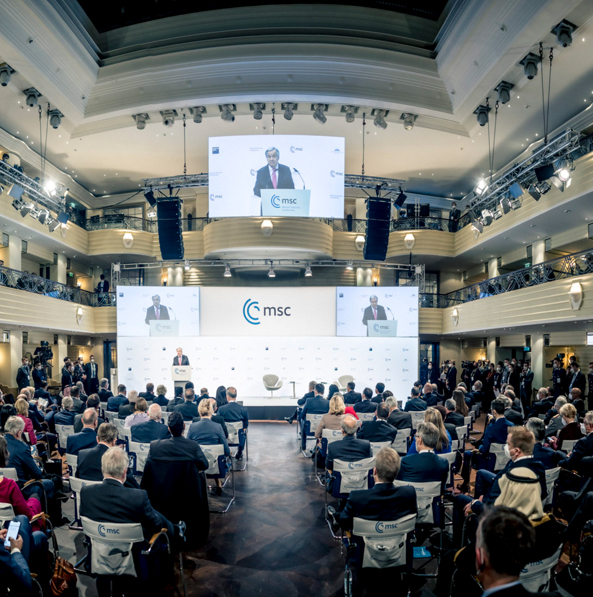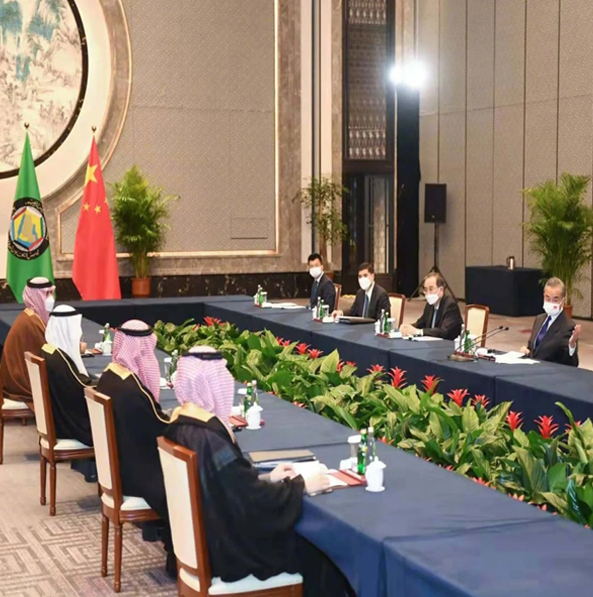following a tug-of-war, it was officially announced that a summit between US President Joe Biden and Russian President Vladimir Putin would be held in Geneva in mid-June 2021 without any party presenting the summit agenda or a preliminary vision of its outcome, the matter which reflects the tense climate in which the first summit after Joe Biden assumed office will take place.
Failure to announce an agenda for the summit does not diminish its significance; for holding such a summit in itself is a step in the right direction towards constructive understanding and bringing views about contentious issues closer. These are issues inherited most notably from Obama's second term when Biden was vice president at the time, which means that both presidents are well acquainted of each other, and have a stressed relationship as an extension of Obama's legacy. That period has marked US-Russian relations at a dangerous juncture after several crises, such as Russia's annexation of Crimea in 2014, and the Russian cyber-hacking of the 2016 US presidential election -- according to US sources -- to support Republican Donald Trump against Democrat Hillary Clinton.
If the summit is held, it will be at a critical time when tensions between Russia and the West in general have escalated against the backdrop of a number of files, most notably the Ukrainian crisis which is still far from being resolved. Ukraine and its Western allies insist on not recognizing the legitimacy of the declaration of secession of some of its geographical scopes, and are working to re-establish sovereignty in these Russian-speaking provinces, whose population are culturally linked to Russia, with some receiving Russian support, according to reports. Russia's annexation of Crimea has reinforced these reports, for after a "quick" popular referendum, the Black Sea spot became part of Russian territory in March 2014, in which Russian troops were deployed, raising fears of "militarization of positions" because of a threat to international stability, raising tensions and polarization, and deepening the gap of confidence and doubts about the intentions that each side perceives.
Border exercises are perhaps one of the obvious manifestations of this militarization, such as the “Defender-Europe” NATO-led exercise between May 12 and July 22, covering a large area extending up to the Black Sea bordering Russia, prompting the Russian Defense Ministry to announce its monitoring of the exercises and "prepare to respond immediately in the event of any unfavorable developments."
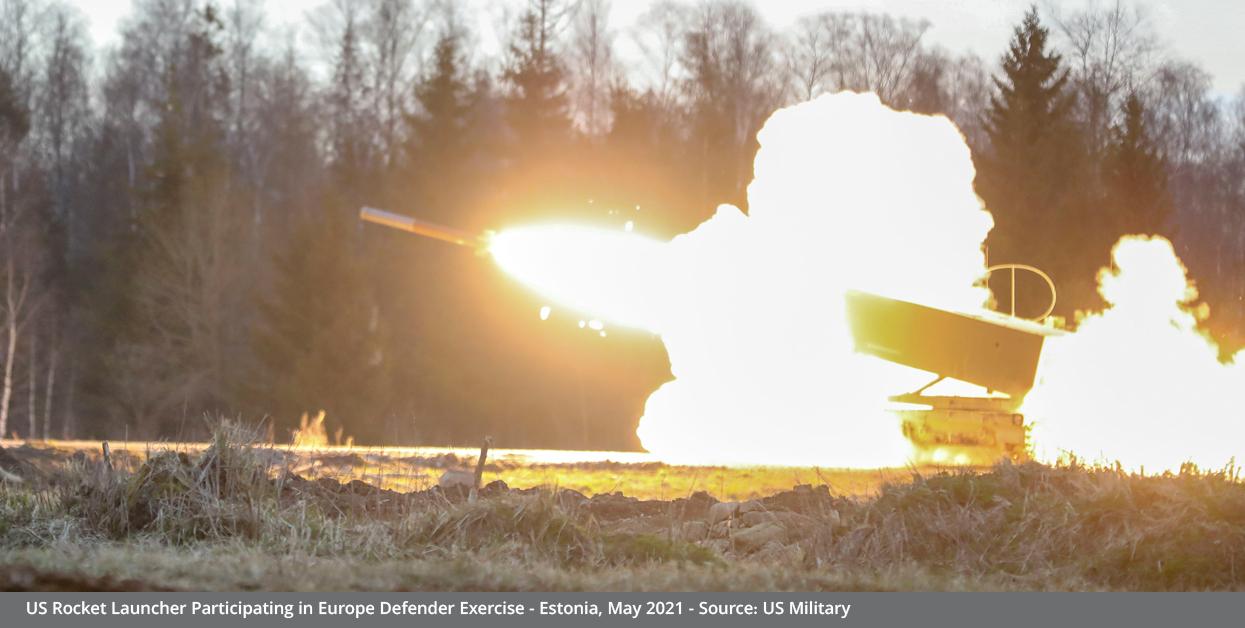
One of the "disturbing" manifestations of this militarization is the repeated announcements of interceptions of aircraft and/or ships approaching areas within the sovereignty of one party or the other. At times, specialized military sites publish an operational explanation of the interceptor exercises that take place, and in the light of this charged complex tension, an incident of the downing of an aircraft, for example, would threaten to fuel escalation and undermine good offices aimed at reducing tensions.
Russian and American decision makers - and even ordinary followers - are definitely aware of the consequences of continuing tension in the international environment. Yet, there is no serious political will to normalize relations between the parties, and the reason why the parties do not seek to build common solutions may be because the factors of aggravation are strategic and uncompromised, making the conflict a zero-sum. The most prominent of these factors are:
1. Different political philosophies
Russian political logic is central and values the role of the state in the conduct of various affairs as an extension of the Soviet era. Russian society tends to adopt consistent ideas on public issues, as Russian political culture is not characterized by fundamental disparities.
Accordingly, political power in Moscow exercises a totalitarian pattern of governance, which worries the West that sees it as harnessing the state's capabilities and efforts towards a unified vision that may be of a confrontational nature and contrary to the foundations of world order established with a liberal, capitalist logic that takes into account the considerations of Western states in the first place.
With Biden as President of the United States, the country has returned to its classic foreign policy style of supporting allies and spreading democracy that achieves and guarantees US interests. Moscow therefore fears "color revolutions" in surrounding countries, such as Belarus, which in May 2021 witnessed a severe diplomatic crisis over forcing a civilian plane to divert and land in order to arrest a 20-year-old civilian activist on board, who the country's authorities claimed had an inflammatory role in large-scale protests following the recent presidential election.
Moscow claims that some opponents have colluded with foreign parties. Western capitals, on the other hand, accuse Russian agencies of practicing state terrorism against those demanding deep reforms, as such controversy usually erupts after serious incidents involving the safety of these opponents, such as critical poisoning incidents or unnatural deaths.
Such disparity in political logic deepens mistrust and uncertainty that are not based on facts. In the past, therefore, there have been numerous statements about the mutual expulsion of Russian and Western diplomats in response to allegations of espionage, among what might be called the "embassy war". These measures, which limit constructive diplomatic communication between the various parties, undermine the possibility of compromises and impede the customary mechanisms for presenting views.
Most experts attribute the reason behind the embassy war to the tense political climate. In this regard, however, it should be emphasized that there are structural imbalances in the Vienna Convention on Diplomatic Relations, adopted in 1961, which regulates the foundations and privileges of diplomats, their headquarters, property and contacts, since it grants almost absolute immunity to diplomatic action, which may encourage one party or the other to violate the spirit of the Convention and exploit it beyond the purpose for which it was created, namely, to facilitate diplomatic communication and to give members of diplomatic missions the utmost freedom and confidentiality as an expression of mutual trust.
2. Geopolitical overlaps
In the first half of the 20th century, the British political geographer Halford Mackinder developed the heartland theory which was the first integrated thesis about the relationship between geography and global domination. Mackinder assumed that Eurasia was a focal point of international domination, serving as the heart of the world, giving those who controlled it a preferential advantage to dominate the world order, comprising nearly 75% of the world's population, about 75% of the world's discovered carbon energy sources, not to mention its contribution to about 60% of global world product, including the most important waterways for navigation.
Political realities continue to demonstrate the importance of this region, where the interests of Russia and the Western bloc overlap, let alone the security sensitivity arising from the convergence of geographical scopes and the required enhancing of military readiness and alert in case of an emergency. Russian Foreign Minister Sergei Lavrov confirmed this fact at a conference in May 2021 in which he said: "The situation remains rather alarming. Our common European continent is experiencing an unprecedented crisis of trust. Division lines are emerging in Europe again. They are moving eastwards and get deeper, as if they were frontline trenches."
These geopolitical tensions will extend in the medium term to a new territory which is the Arctic. As Arctic ice melts due to global warming, there are significant natural and mineral resources to be revealed, and a navigational way could change the world trade map if melting continues at the same pace. STRATEGIECS Think Tank published a report in May 2020 entitled “The Cold War in the Arctic Circle", in which it anticipated the region's future transformation into a hotbed of international tension.
3. Apprehension of military and cyber capabilities
It is hardly a year before Russia and/or US announce the development of a new weapon that strengthens the arsenal of strategic deterrence and fortifies the state sovereign position. Strike force has made the start of war unlikely; since the major powers developed nuclear weapons, the purpose of military force has changed from achieving a political goal to pushing the enemy not to declare war.
The defensive and offensive capabilities assessment indicates that the US military continues to be at the forefront, based on a massive military spending of more than $78 billion in 2020, while Russian military spending was nearly $61.7 billion.
In practice, this comparison cannot be based on for a comprehensive perception of US achievement of guaranteed military superiority, since power has a moral aspect represented in the psychological perceptions that each side has about its capabilities and those of the other. Also, both parties possess sophisticated weapons that complicate the process of "breaking the military balance".
What worries the US intelligence community about Russia’s growing military capabilities, however, is that they are designed to overpower their US counterpart, in terms of both offensive and defensive systems. Russian forces are undergoing a comprehensive modernization process with an 88% share of advanced weapons in the nuclear triad, as revealed by Russian President Vladimir Putin during his annual message at the Federal Assembly in April 2021. (A nuclear triad is a three-pronged military force structure that consists of land-launched nuclear missiles, nuclear-missile-armed submarines, and strategic aircraft with nuclear bombs and missiles.) Russia is also developing its ultrasonic missile capabilities and the Zircon missile is expected to enter service soon, a missile that is capable of carrying large quantities of uranium and cannot be intercepted, according to military websites.
.jpg-%D8%A7%D9%84%D9%82%D9%85%D8%A9-%D8%A7%D9%84%D8%A7%D9%85%D8%B1%D9%8A%D9%83%D9%8A%D8%A9-%D8%A7%D9%84%D8%B1%D9%88%D8%B3%D9%8A%D8%A9-1700x680.jpg)
Russia explains such modernizations as aiming at defensive purposes in response to steps it sees as suspiciously provocative from NATO and the West, such as a missile shield system that aligns Russia's vital area and is capable of paralyzing Russian military air traffic. Moscow has always protested NATO’s increased military deployment near its borders, such as in Germany, Poland and the Baltic States.
Russian Defense Minister Sergey Shoygu announced his country's intention to establish 20 formations and units in the western military region in response to NATO's deployment of cruise warships and intensifying military and reconnaissance flights and military exercises.
The military dimension in US-Russian relations may be less complex and clearer than the cyber dimension. Incidents of cyberattacks targeting vital facilities are frequent and it is widely believed that there is a government agency behind them because these attacks are complex besides that "amateurs" cannot acquire the techniques and software used in these hacks.
US national security adviser Jake Sullivan suggested that the Biden administration would resort to responding to these attacks in ways that could not only be limited to sanctions but could also include "visible and invisible tools." The White House announced in June 2021 that ransom hacking would be at the "heart" of the topics to be discussed at the next summit.
This military and cyber turmoil threatens strategic stability and increases uncertainty in the world order, reducing the predictability of next steps, which may not be an all-out war — mostly — but will be more side conflicts in "hybrid" indirect arenas, draining national capacities and preventing the building of cooperative natural relations and thus continuing this tension for years to come.
Nixon's strategy "reversed"
After Beijing's economic and international ascent, its role cannot be overridden when it comes to talking about US-Russian interactions, as its positioning in these interactions will play an influential role in the nature of relations between the two former Cold War poles.
In recent years, relations between Beijing and Moscow have grown against the backdrop of the common threat posed by the US strategy, prompting them to strengthen their cooperation to reach a "strategic partnership" reflected in the Power of Siberian gas pipeline which provides China with part of its energy needs and in an increased trade and military cooperation in terms of joint exercises and China's possession of sophisticated Russian weapons. This partnership extends to coordinating political positions on key international issues.
Nevertheless, this partnership is still far from being a unified polar fusion, as each side remains trapped in the recent past in which they competed for the leadership of communist ideology and clashed in the border areas. The size and type of current overlap does not amount to a strategic alliance, particularly since there is no defense or security agreement that brings both sides together.
Yet, what unites them does not stem prominently from a "subjective" awareness of the importance of cooperation as much as from common external threats and "punitive" actions taken by Western States. The Trump administration has been characterized by excessive sanctions against allies and competitors alike. However, the Biden administration has begun to undo Trump’s policy, thus being prudent in managing international rivalries and without "shooting everyone," seeking, in doing so, to avoid deepening the international front opposed to its foreign policy; because relying on sanctions and neglecting incentives in the conduct of foreign affairs is unpreferable.
The most prominent sanctions that the current US administration has backed down are those imposed on companies participating in the Nord Stream 2 project, which transports Russian gas through the Baltic Sea to Germany and then to Europe. These sanctions have aggravated US-European relations, which means that undoing them is a commitment by the Biden administration to restore transatlantic relations. This may also serve as a political message to Moscow that Washington wants to improve mutual relations and move beyond antagonism to a new situation in which each side respects each other's interests and red lines, without encroachment and without deliberate provocations.
In this regard, it should be noted that some US strategic planning centers call for following Nixon’s strategy reversely to counter the Chinese ascent. Under the 37th US President, Richard Nixon, in the first half of the 1970s, a strategy of rapprochement with communist China was pursued to prevent its rapprochement with the Soviet Union and to prevent the unification of the efforts of what is supposed to be a unified totalitarian ideological front against capitalism.
The strategy – suggested by the then-National Security Adviser Henry Kissinger -- succeeded in achieving its goals and created security concern for the Soviet Union in its southwestern border. Similarly, a similar strategy may be inspired, but to counter China's growing capabilities this time around.
The Covid-19 pandemic casts a shadow over the confrontation, as the official announcement of the Russian-US summit coincided with Biden's request for intelligence to report on the origin of the virus within 90 days, and growing "scientific" and political voices in Washington suggesting that the virus would leak from a biological laboratory in Wuhan.
Biden also signed an order in June 2021 banning corporate and individual investment in 59 business entities, indicating that Sino-US relations are not moving toward a breakthrough or an understanding on solid contentious issues, unlike US-Russian relations, which appear to be at the height of tension and heading for a less turbulent path.
Apart from the reported possibility of a Chinese-Russian pole and the overstatement of some analysts in assessing their bilateral relations, the two countries are not qualified in the medium term to melt as a single polar case, due to the deep dissonances between them, most notably the different foreign policy perspective and the different instruments through which they seek to achieve their foreign objectives. China tends to adopt a peaceful, calm, economically powerful ascent and avoid clashes, while Russian foreign policy takes a solid approach that does not mind the use of military force — either directly or indirectly — once its higher interests collide with any party.
Beijing's striking economic power could also become a real threat to Moscow, especially as the former weaves ties and alliances in Russia's vital field and steadily expands in Central Asia, Russia's backyard.
So far, Russian-Chinese clashes have not come to light, but they are expected to emerge as China invests its economic power as a regional and international influence, especially as China’s global silk road project — of which Russia is part — encircles Russian geography, and is also expected to expand to include China's military security presence and will not remain limited to economic and development dimensions.
The bottom line
It can be said that holding the US-Russia summit under these tense circumstances is an achievement in itself and a starting point for correcting the course of bilateral and even international relations. Expectations of this summit should not be raised, as it is true that both parties will emphasize the importance of protecting and promoting international strategic stability, but there remains a difference between them in the means used to achieve this goal.
To break out of this limbo, both countries can support some important files in the eyes of the other. For example, Russia has a presence in Iran and Afghanistan that enables it to make the transitions in these countries a success, leading to the realization of the US vision for them (the serious implementation of the nuclear deal with Iran, and the safe withdrawal of US forces from Afghanistan). On the other hand, since Russia is a nuclear power with an ever-growing economy, the United States could lift some of the sanctions imposed on it and resolve some pending issues such as recognizing the legitimacy of the annexation of Crimea to Russian sovereignty.
Despite tensions deep in Russian-US relations, it is not right to call it a "new Cold War" because of the lack of ideological competition and the absence of influence blocs belonging to one party or another, similar to the "Soviet" Eastern European bloc and the "American" Western European bloc. Also, the collisions are not directly rough but are carried out with hybrid technical and economic tools.
In addition, both states are not in the process of shouldering the cost of leadership and guidance for a particular current in the world order, as this requires military deployment and economic capabilities, and no state has the luxury of incurring the cost of external spending in the light of the consequences of the Covid-19 pandemic crisis and the change in state priorities towards domestic issues.
Accordingly, both states are aware that the gains made from a positive shift in mutual relations will have a positive impact on domestic realities and on the arrangement of foreign policy in accordance with developments that cannot be managed by the same logic as before.
Keep in touch
In-depth analyses delivered weekly.

Related Analyses:







